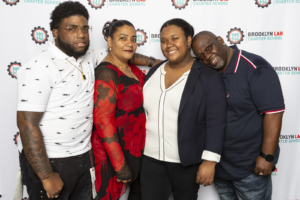“The future is something which everyone reaches at the rate of sixty minutes an hour, whatever he does, whoever he is.” ~C. S. Lewis
Redesigning education involves much more than providing content online, prescribing canned interventions and adding interactive whiteboards to every room. It means choosing the
abilities that transcend today’s paradigms, so that we authentically prepare students for the emerging challenges and opportunities ahead. It also means valuing assessment that gives us MORE THAN
high scores, but low ability. If you look at just about any school’s website, brochure or annual report you’ll see many references to similar goals. However upon closer investigation we often find this is not reality.
How do you know if your school is preparing students for their future or their teacher’s past? Here are some questions to think about when considering if learners are effectively being prepared for their world.
1. How is your schedule effectively meeting the needs of your learners?
As Tom Vander Ark articulates in his book “
Getting Smart: How Digital Learning is Changing the World, “Master schedules will give way to interesting blends of customized learning experiences and projects that encourage integration and application. Just-in-time learning will become more common, slowly replacing the current model of just-in-case learning.”
2. How do you prioritize pedagogy over ‘curriculum’?
What are you doing to create rich learning experiences and cut through
superficial busywork that makes adults feel productive, but does little to reinforce/expand a student’s skills, interest and knowledge. If a school responds with the standard brochure talk of ‘high expectations’, ‘common core’ and or ‘interactive whiteboards in every room,’ follow with the question “how?”
3. How do you build relationships with learners?
How are positive relationships with teachers, mentors, coaches and family being fostered and supported?
4. How are you educating parents to the importance and relevance of personalized assessment?
Look up a stock on Google Finance and see how many qualitative and quantitative measures you have at your finger tips. Why is it for human capital we don’t have the same appreciation for multiple metrics?
5. How are you motivating students to keep learning?
In his book
Outliers, Malcom Gladwell recommends we maximize the number of innovators we cultivate and foster which requires looking at
human motivation in new ways and recognizing the importance of
imagination and creativity. How is your school fostering empowering students to own the learning? Too often schools attempt to polish the edges of their model in attempt to live up to this bigger vision. They hand select individual pieces of effective practice and then when it fails or doesn’t scale, they wonder why. These are schools that do things like proclaim, ‘we do competency-based evaluation’, but use course-based transcripts with GPAs–and they don’t realize the inconsistency. To effectively scale authentic, personalized learning and assessment, educators need to embrace new practices, utilize different tools, and ask important questions such as these.







0 Comments
Leave a Comment
Your email address will not be published. All fields are required.